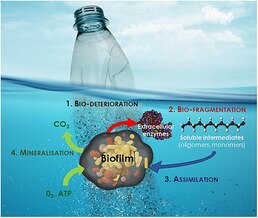
In the news this week. Coastal marine invertebrates have colonized the open waters, thanks to plastic debris humans have dumped in the oceans. On the North Pacific Subtropical Gyre, more than 70 percent of the plastic debris is covered by diverse coastal species of invertebrates. This research suggests that past boundaries between species are breaking down. (https://www.sciencedaily.com/releases/2023/04/230417142539.htm) This is consistent with human activity, especially since our era of global industrialization.
Through purposeful and accidental introduction of new flora and fauna species, we have for centuries been causing what ecologist Mark van Kleunen calls a new Pangaea. “These effects [of invasive flora species] are now evident in the most remote corners of the world. … Unless more effective protective measures are taken to counter the ongoing spread and naturalization of alien plants in the future, they will continue to destroy the uniqueness of our ecosystems—making the world a less diverse place.” (https://www.sciencealert.com/we-re-losing-unique-flowers-around-the-world-as-invasive-plants-take-over)
It is hard to truly know the fullness of our impact on deep ocean species; but rejecting plastics in our music classroom materials is a good first step teachers can make. We can also teach music in such a way to make students aware of these challenges, and brainstorm ways to act—to counter our impact and begin to remediate both the causes and effects of that impact. It seems to me we got into the problem through individualization, standardization, industrialization, consumerism, and technologism. We can get out of this only through seemingly radical and conservative acts such as community, slowing down, buying less, and singing, dancing, and playing more.
A Song for the Earth, music and lyrics by Joel Settler & Jim Scott (https://youtu.be/DbbWcAbfbr4)
The tainted river struggles to the open sea
Defiled is the mountain’s majesty
All of life is a chain
When one is hurt we all feel the pain
DS
Link to image: https://upload.wikimedia.org/wikipedia/commons/thumb/c/c1/Stages_of_marine_plastic_biodegradation.jpg/640px-Stages_of_marine_plastic_biodegradation.jpg
 RSS Feed
RSS Feed
